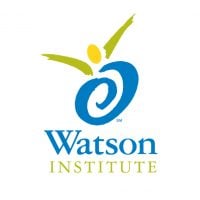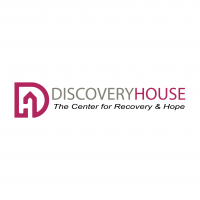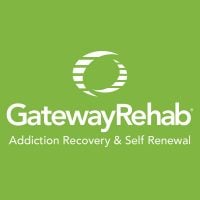
Watson Institute
Drug Rehab Center in Pittsburgh, Pennsylvania
- Mental Health
The Watson Institute in Pittsburgh, PA provides comprehensive addiction treatment services, including individualized therapy sessions and evidence-based treatments, to help individuals achieve sustained sobriety and develop positive lifestyle changes.
About This Pennsylvania Facility
Located in Pittsburgh, Pennsylvania, Watson Institute is a mental health treatment facility that offers comprehensive care for individuals looking to improve their well-being and overcome mental health challenges. The institute specializes in treating people suffering from mental health disorders and provides a range of outpatient levels of care. With a dedicated team of professionals, Watson Institute creates a supportive and compassionate environment where individuals can receive the help they need to regain control of their lives.
At Watson Institute, individuals struggling with addiction and substance abuse can find a wide array of services and evidence-based treatment methods to aid in their recovery journey. The facility offers personalized treatment plans tailored to the unique needs of each individual, with a focus on addressing the root causes of addiction. They provide therapy sessions, which may include individual counseling, group therapy, and family therapy, to help individuals develop coping skills, build healthy relationships, and work through any underlying emotional issues. Additionally, Watson Institute offers comprehensive psychiatric evaluations and medication management for individuals who may benefit from medication-assisted treatment. Through a combination of therapy, support, and specialized care, Watson Institute strives to help individuals regain control of their lives and achieve long-lasting recovery.
Genders
Ages
Modality
Additional
Conditions and Issues Treated
Levels of Care Offered at Watson Institute
This center offers a variety of custom treatment tailored to individual recovery. Currently available are Outpatient, with additional therapies available as listed below.
Outpatient treatment is treatment that occurs when a patient is not checked into a rehab facility. The patient may show up for therapy sessions, go through detox and engage in other therapies to help them recover. However, they will do so while they live at home in Pennsylvania.
Outpatient therapy provided by Watson Institute is usually recommended as a follow up to inpatient therapy. It helps patients adapt to their normal lives after treatment. In some cases, it can also be an alternative to inpatient treatment. People may choose this route if they are unable to leave their jobs, children or if they don’t have the money for inpatient treatment. However, inpatient treatment is the best way to recover from addiction.
Therapies & Programs
Individual professional counseling or individual therapy refers to the one-on-one interaction between a patient and his or her counselor. Individual therapy allows for more privacy, one that group interactions can’t provide. Therefore, it becomes easier for a person to unload and become more open to his or her counselor.
Another benefit of individual therapy at Watson Institute in Pittsburgh, PA is that all sessions aim to speed up a single person’s progress. It makes it easier for the counselor and the patient to deal with the central issues, which are likely the culprits of substance addiction.
Once the roots of the problems are addressed, it becomes less challenging for a recovering patient to maintain sobriety and brush off temptations.
Families are not always as supportive as they could be, but by opting for family therapy, many recovering addicts are able to understand their addiction and get the support they need to get sober. These therapy sessions at Watson Institute in Pittsburgh, PA involve all members of the family who play a role in the recovering person’s daily life. They work together to overcome past issues, avoid triggers, and remain strong and supportive of each other.
In group therapy, the patient undergoes sessions with other patients dealing with similar problems under the guidance of a trained counselor. The members of the group interact with each other and talk freely about their issues. The recovery of members of the group from the problems that they face gives the patients confidence that they can also overcome their addiction.
Group therapy at Watson Institute reduces the feeling of loneliness and improves the coping skills of the patients. Group therapy provides patients with continuous feedback from other members. The group dynamics ensure that members start having some structure and routine in their lives.
Dialectical behavior therapy (DBT) is a method of individual and/or group counseling that focuses on acceptance and change. DBT can be very effective in developing coping strategies for negative emotions.
Cognitive behavioral therapy (CBT) is a way of addressing concerns through talking. Talking through issues can identify sources of discomfort or unhealthy thoughts. CBT is a healthy way Watson Institute addresses some behaviors which may be bringing unintended consequences in a persons life.
Nutrition therapy involves providing healthy diet and improving the eating habits of the patient. Expert dieticians provide individualized meal plan, that addresses the specific nutritional deficiencies. Nutrition therapy also teaches the associated life skills such as cooking healthy food and grocery shopping. It helps to overcome the food cravings that are seen in certain addictions.
NRT, also known as nicotine replacement therapy, allows someone to get the effects of nicotine without chewing or smoking. It is often done with a patch, allowing those who want to quit relying on nicotine to better manage their cravings. As the cravings get easier to manage, the doses of nicotine get reduced until nicotine is no longer needed.
Patient Experience
Experiential Therapy at Watson Institute
Experiential therapy can involve acting, props, arts and crafts, animal care or other tools. It can help revisit and heal from past traumas. Trust between the therapist at Watson Institute and individual is important for success and grown over the stay.
Payment Options Accepted
For specific insurance or payment methods please contact us.
Additional Details
Specifics, location, and helpful extra information.
Pittsburgh, Pennsylvania 15206 Phone Number(412) 365-3800 Meta DetailsUpdated November 25, 2023
Staff Verified
Patient Reviews
There are no reviews yet. Be the first one to write one.
Pittsburgh, Pennsylvania Addiction Information
Pennsylvania ranks 14th in the nation for drug-related deaths. More than 10% of all deaths in Pennsylvania have been related to drugs and alcohol. 30% of Pennsylvania youth reportedly drink alcohol monthly, with more than 20,000 teenagers having an alcohol problem. The rate of opioid misuse in Pennsylvania is double the national average.
Pittsburgh, Pennsylvania, has been hit hard by the opioid epidemic. About 24,000 people in Pittsburgh struggle with drug addiction. In the city, there were 9,813 overdose deaths in 2016. Alcohol is a factor in more than 38% of all traffic fatalities in Pittsburgh. There are plenty of drug treatment centers in the area to help you get your life back on track.
Treatment in Nearby Cities
- Wernersville, PA (203.1 mi.)
- Carbondale, PA (243.6 mi.)
- Souderton, PA (242.9 mi.)
- Carlisle, PA (145.1 mi.)
- Charleroi, PA (22.4 mi.)
Centers near Watson Institute



The facility name, logo and brand are the property and registered trademarks of Watson Institute, and are being used for identification and informational purposes only. Use of these names, logos and brands shall not imply endorsement. RehabNow.org is not affiliated with or sponsored by Watson Institute.





